Bob Lambert’s Third Day at the Public Inquiry
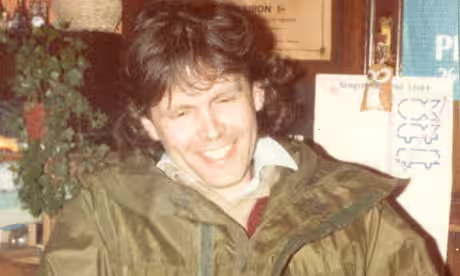
Spycop Bob Lambert while undercover in the 1980s
On Wednesday 4 December, infamous spycop Bob Lambert returned to the Undercover Policing Inquiry for the third time.
He is giving evidence every day this week. We’ll publish detailed reports later, but in the meantime we’re doing quick overviews of the key points every day. (Here are our reports for Monday 2 December and Tuesday 3 December).
Wednesday’s hearing was not livestreamed (or broadcast on iPlayer, for that matter) and it is still unclear if any more of Lambert’s evidence will be or not – there are rumours that some of it will be.
The Inquiry has now uploaded the (edited) transcript of Wednesday’s hearing. There’s plenty more evidence that’s just been published, so is available on the Undercover Policing Inquiry website: over 700 pieces relating to ‘HN10’ (the code for Bob Lambert).
These include transcripts of the interviews carried out with him in 2013-15 as part of ‘Operation Herne’ (an internal police investigation into the spycops’ misconduct), some of which make very interesting reading.
BIZARRE BEHAVIOUR
At the very start of Wednesday’s hearing, David Barr KC, who is questioning Lambert on behalf of the Inquiry, made some comments which helped us understand Lambert’s bizarre behaviour of the day before a little better.
When we heard him say ‘I’ve never been asked that before’, it was in the middle of a conversation about the way that Jacqui (an activist Lambert had deceived into a relationship and had a child with) and ‘TBS’ (their son) had first found out that ‘Bob Robinson wasn’t a real person but was in fact undercover police officer Bob Lambert.
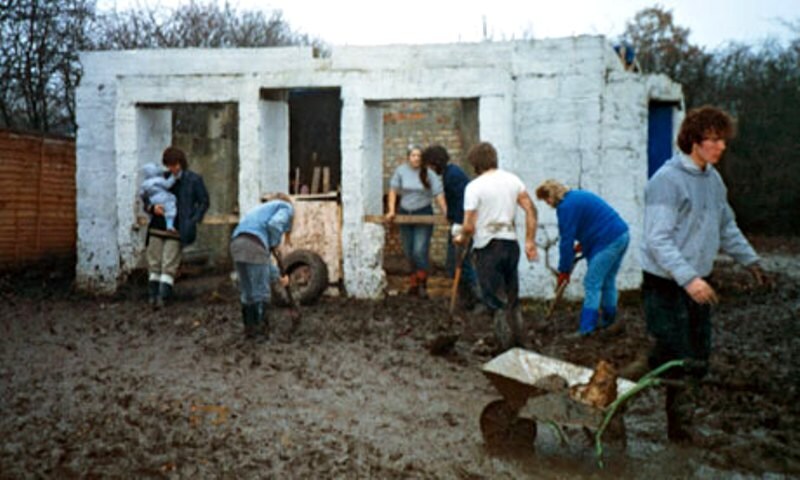
Bob Lambert (far left) with baby son TBS at Hopefield animal sanctuary
Like everyone else, we thought ‘I’ve never been asked that before’ meant that this was the first time anyone had asked him about the events of that era since they occurred.
What we now think he meant is that the Inquiry hadn’t officially asked him about this subject. They had sent him a ‘Rule 9’ request (this is Rule 9 of the Inquiry Rules 2006 – which allows a public inquiry to send a written request asking for a witness statement or other evidence to be supplied). However, this wasn’t one of the questions asked of him at that time.
It appears that his memory, bad enough at the best of times, couldn’t function without this kind of advance warning. Barr took pity on him, and said on Wednesday morning that he will be sent another such request, and given time to produce a second, ‘supplementary’, witness statement.
The livestream was only suspended once on Wednesday, with even the Inquiry’s Chair, Sir John Mitting, looking confused as to why it happened. After about 15 minutes and an emergency Restriction Order covering a full nine minutes of evidence, everyone returned to their seats, and was told whatever had been said was not a problem after all.
At the time, Lambert was talking about how his ‘predecessor’ in the Special Demonstration Squad had been spying on people involved in organising the big ‘Stop the City’ protests of 1983. This is no huge surprise; at the time everyone knew how keen the police were to find out what was planned.
LYING ABOUT POLICE & MCDONALD’S
Lambert also said that there were ‘no links’ between Special Branch and the McDonald’s corporation, despite these being extensively documented.
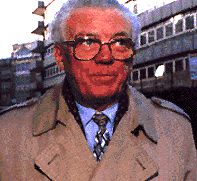
Sid Nicholson, police officer in apartheid South Africa and Brixton before becoming McDonald’s head of security
McDonald’s Vice President Sid Nicholson was their Head of Security, and as a former Metropolitan Police officer himself, tended to recruit from within the Metropolitan Police ‘family’. Nicholson spent 31 years in the police and rose to the rank of Chief Superintendent. Both he and his side-kick, Terry Carroll, were based at Brixton nick.
It is believed Lambert worked closely with Brixton police during his time in Special Branch’s C Squad, before going undercover to infiltrate London Greenpeace. His denial of any knowledge of contact between the police and the fast food corporation therefore stretches credibility.
There were many points during the day when we marvelled at David Barr KC’s skill – especially when he face to yet another long, rambling collection of words that issued from Lambert’s mouth (calling them ‘sentences’ would be inaccurate, and an insult to grammar) and just reposnded ‘understood’.
Lambert consistently failed to answer even simple questions. And occasionally made unsolicited offers which he obviously had no intention of carrying out. One memorable example was when he told us ‘I won’t launch into anecdotes’, and promptly commenced to share a number of very long and boring anecdotes.
Supposedly somebody once called him ‘the boring man in green’ at an anarchist bookfair. Watchers have realised that he’s taken his method acting so far that he’s really nailed the character of ‘annoying old man’. One person remarked that he ‘is like that bloke you avoid in the pub’.
He is very unwilling to admit that he might have been inspirational in any way, and says something like ‘I can’t really imagine anyone finding me charismatic’. He thinks ‘Bob Robinson’ was regarded as ‘trustworthy’, and ‘reliable in all respects’, someone with a van who was always ‘available’ to help people and animals who needed it’.
UNDERESTIMATING HIMSELF
He also made a point of telling us (again) what a ‘junior’ officer he was during his time in Special Branch’s C Squad. He went on to boast of being described as ‘intelligent’ by Martyn Lowe (who was part of London Greenpeace when first spied on by ‘Bob’) and made sure we knew that he’d failed his 11-plus and not gone on to further education after school. Oh, and he was told he was good on a megaphone. He seemed very proud of this and implied that it gave him a purpose in life.
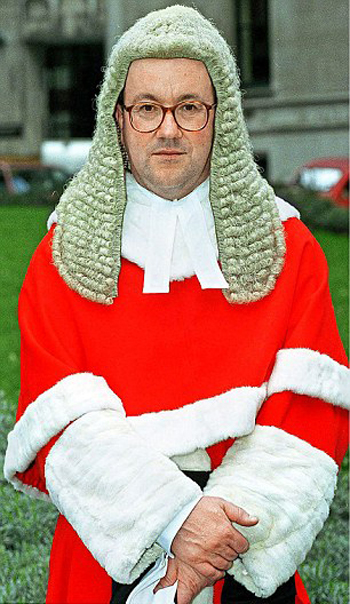
Inquiry Chair, Sir John Mitting
Mitting interrupted proceedings at one point to let Lambert know that his admitted involvement in various actions constituted active ‘assistance’ in the committing of criminal offences (‘aiding and abetting’ would be the technical term).
We heard a few examples of this, including his role as a ‘getaway driver’. For a man who claims not to have used any of the corrosive etching fluid he asked activists to obtain for him so he could damage windows, he seems to have got through a lot of it.
Things like getting authorisation, or worrying about concepts like legal professional privilege, or doing anything about miscarriages of justice once he’d learned of them, were not a priority.
We note that he has come up with a few new ways to resist Barr’s questions, for example
‘I can’t offer anything that I can remember’, ‘I can’t answer that competently today’, and ‘I cannot really offer anything today’.
There were lots of the usual lies and exaggerations, many of which were skilfully highlighted by Barr. Lambert was forced to admit that:
- he had only met Ronnie Lee once before Lee went to prison (instead of ‘regularly’)
- arson attacks did not in fact enjoy the ‘full support of London Greenpeace’
- for all of Geoff Sheppard’s verbal expressions of a ‘visceral hatred’ of vivisection, he never intended or carried out any actual violence against vivisectors
He fell back to claiming that he made his reports ‘as accurately as I can’. He never admitted to stealing Chris Baillee’s diary, just made up a convoluted and incredible story about how its contents landed in an SDS report, having been somehow passed to Special Branch by ‘local police’.
He spent a long time insisting that activists talked about their criminal activity, and the idea of only speaking about such things on a ‘need to know’ basis was just an ‘aspiration’ that nobody stuck to. Yet if groups of people did talk about actions they’d done at any ‘private gathering’ attended by Lambert, he conspicuously failed to mention this in any of his reports.
It was clear that his role, like that of the other spycops officers, was ‘hoovering up’ any information he could get his hands on. He just added extra dirt to his, to make his work seem more impressive.
HUNT SABOTEURS
Another group he seemed very keen to cast shade on was the Hunt Saboteurs Association (HSA). He continually spoke of ‘violence on both sides’ and was noticeably unwilling to criticise the violence carried out by hunt supporters.
Jacqui has already told us about her experiences as a young female hunt sab, many of which ‘Bob’ witnessed at the time, but he pretends to have conveniently forgotten all this, leaving many of us wondering if he perhaps has friends in the hunting fraternity, or even takes part himself these days.
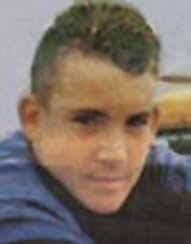
Tom Worby, murdered aged 15 near Gravesley in Cambridgeshire when a hunters’ van drove at him and dragged him along the road.
He admitted that the HSA’s rules precluded hunt sabs from ever using or provoking violence, but claimed that many people broke these rules, and that others within the HSA welcomed the police’s involvement in dealing with such ‘hot heads’. He also talked about the alleged existence of a notorious ‘Hunt Retribution Squad’ and kept using the phrase ‘visceral hatred’.
He doesn’t recall ever witnessing a police officer make an unlawful arrest of a hunt saboteur. He is unwilling to criticise any of the policing he saw – he thinks they did ‘a difficult job the best they could’.
It’s hard to listen to him and not recall the huge levels of violence meted out to hunt sabs in the 1980s and 1990s. Some of them were seriously injured and even killed while trying to protect the lives of animals. RIP Mike Hill (killed 9 February 1991) & Tom Worby (killed 3 April 1993 at the age of 15).
Some of this violence was detailed in the ‘Public Order, Private Armies: the use of hunt security in the UK and Ireland’ report delivered to the Home Affairs Select Committee at the time. Lambert’s deliberate failure to talk honestly about this era makes all the evidence he gives even less credible.
Tom Fowler broadcast a reaction video at the end of the day’s hearing, as well as a ‘Twitter space’ in the evening.
Lambert speaks so slowly, and there’s so much to ask him, that the Inquiry team have decided that they’ll need to schedule *another* day in order for him to deliver all his evidence. As well as Friday 6 December, he is due to return on Tuesday 10th to complete his evidence for this ‘Tranche’ of hearings.
He is bound to be asked back again for the next ‘Tranche’ (covering 1994 onwards, hearings expected to be in May 2025) as this will cover his time as a Special Demonstration Squad manager and spycops’ handler.
In other news, yesterday the Inquiry published another ruling from Mitting, making clear what we had already suspected about the anonymity applications of 15 other spycops officers, all of whom were part of the SDS’s successor unit, the National Public Order Intelligence Unit. The real names of 14 of these officers will be kept secret and just one name, that of EN107, will become public knowledge.
